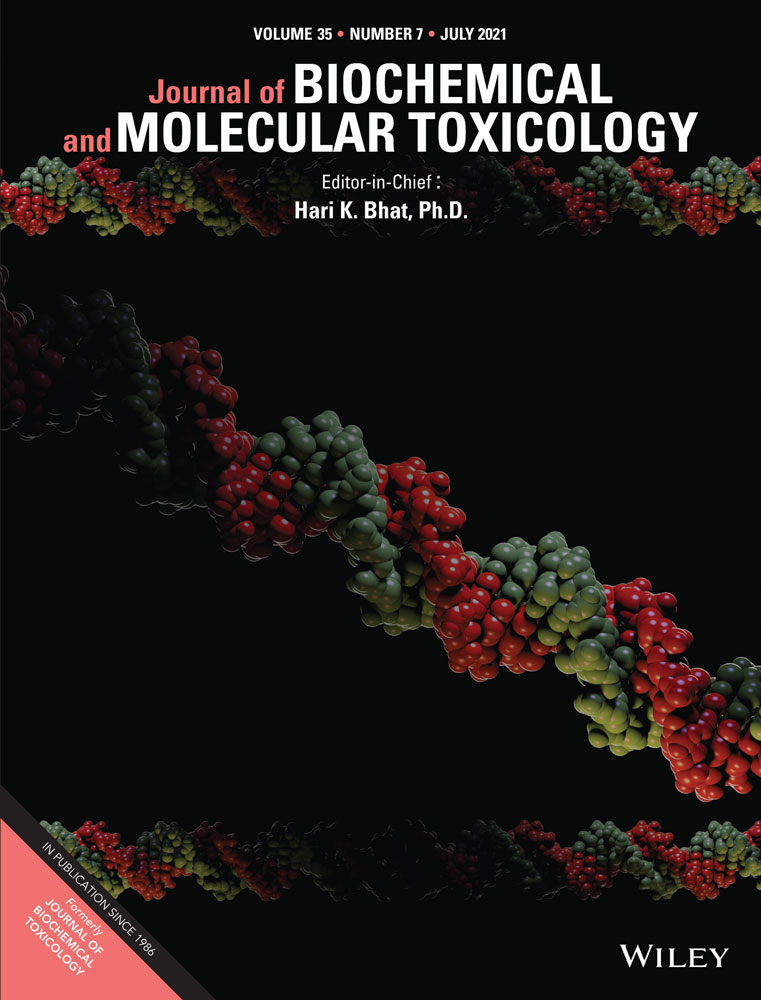Hepatoprotective potential of kirenol on ethanol-induced liver toxicity in albino rats and acetaminophen-induced oxidative stress-mediated apoptosis in hepatic HepG2 cells
Dongsheng Sun and Ying Li contributed equally to this study.
Abstract
Liver diseases are a major health issue in both men and women and cause significant mortality worldwide. The hepatoprotective effects of kirenol were evaluated in acetaminophen (APAP)-induced toxicity in HepG2 cells and ethanol (EtOH)- induced hepatotoxicity in rats. The cytotoxicity of kirenol (IC50, 25 µM/ml) and APAP (20 µg/ml) with sylimarin (IC50, 15 µg/ml) was observed in HepG2 cells by 3-(4,5-dimethylthiazol-2-yl)−2,5-diphenyltetrazolium bromide assay. Furthermore, reactive oxygen species formation, mitochondrial membrane potential, and oxidative stress markers such as thiobarbituric acid-reactive substance, suproxide dismutase, and catalase were assayed. Rats were administered a different dose (10, 20, and 30 mg/kg/day) for a period of 4 weeks before a single dose of EtOH (40% vol/vol) 3 g/kg/day. EtOH administered rats appeared to have lower body weight gain, severe hepatic and kidney damage as proved by elevated aspartate transaminase, alanine transaminase, alkaline phosphatase, uric acid, increased malondialdehyde (MDA), and inflammatory markers, and reduced glutathione (GSH) levels. Results showed that the kirenol treatment enhanced the GSH and reduced MDA in the liver and renal tissues and restored TNF-α and IL-6. Histoanalysis proved the protective effects of kirenol. In conclusion, it was proved that the kirenol demonstrated a hepato-protective effect in APAP- and EtOH-induced liver toxicity in HepG2 cells and rats, respectively.
CONFLICT OF INTERESTS
The authors declare that there are no conflict of interests.
Open Research
DATA AVAILABILITY STATEMENT
The data used to support the findings of this study are available from the corresponding author upon request.




